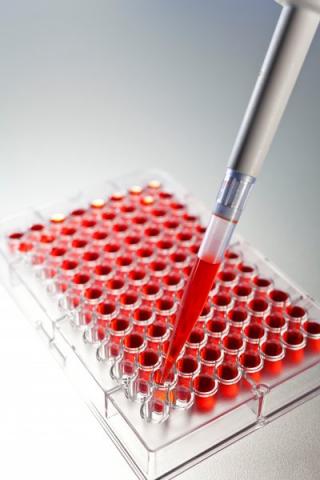World Hepatitis Day call to get tested

Ahead of World Hepatitis Day on Sunday 28 July, the Public Health Agency (PHA) is reminding people who think they may be at risk from hepatitis B or C infection to get tested.
The latest figures from the PHA show that there were around 110 new cases of hepatitis B and about 130 new cases of hepatitis C reported in Northern Ireland in 2012. These figures have remained consistent for the past five years.
Although hepatitis is not common in Northern Ireland, it is very common in other parts of the world, with an estimated 400 million people living with chronic hepatitis B and C worldwide.
Dr Neil Irvine, Consultant in Health Protection, PHA, explained: "The Hepatitis B virus can cause an acute or a chronic infection. In Northern Ireland, acute infection is usually sexually-transmitted, whereas most people with chronic infection tend to have been infected in countries where hepatitis B is common, either at birth, or through contact with contaminated blood.
“The hepatitis C strain is spread through direct contact with infected blood. It is most commonly associated with intravenous drug use, but in countries where hepatitis C is common, people may be infected during medical or dental procedures if unsterile equipment is used.
“Hepatitis B and C are not spread through normal social contact, kissing or sharing cutlery.”
Hepatitis B and C are viruses which can remain in the body and cause severe liver disease many years after infection. People who are infected may not be aware of it until the problem becomes obvious.
The PHA is warning people that if you think you have been at risk, you should get tested. Treatments are getting better all the time, so it is worth knowing if you have been infected. It is also important to protect your family if you are infected.
Dr Irvine continued: “The important thing to remember is that hepatitis may infect you without you being aware. We are urging people to come forward and get tested if you think you could have been at risk from either hepatitis B or C. If you have lived in any of the higher risk countries, which include Eastern Europe, many parts of Asia, Africa and South America, you should be tested.
“The greatest risk of contracting hepatitis C in the UK is through sharing equipment for injecting drugs. It is important to stress that people who shared needles years ago, even just once, may be infected and have been undiagnosed for years. Other risks include having had a blood transfusion before September 1991 or having had a tattoo or body piercing using non-sterile equipment.
“It is also important to know about how to avoid becoming infected. This includes practising safer sex, not sharing needles or injecting equipment, and avoiding getting tattoos abroad.
“A hepatitis B vaccine is available and routine immunisation of at-risk groups is recommended. A vaccine for hepatitis C is not available. However, treatment for hepatitis C is improving all the time.
“So if people think they may have been exposed to the virus, even if this was many years ago, talk to your GP or nurse and get tested.”
World Hepatitis Day aims to prompt people to think about the huge scale of hepatitis infection globally, about whether they may be at risk and if so, to get tested and also about how to avoid becoming infected. The long-term objective of the day is to prevent new infections and to deliver real improvements in health outcomes for people living with hepatitis B and C.
- PHA leaflet - Hepatitis C: could I be at risk? -http://www.publichealth.hscni.net/publications/hepatitis-c-could-i-be-risk-english-and-6-translations
- PHA leaflet – Hepatitis B: Could I be at risk? http://www.publichealth.hscni.net/publications/hepatitis-b-%E2%80%93-could-i-be-risk
- For more information on hepatitis and to avoid becoming infected see - http://worldhepatitisalliance.org/AboutViralHepatitis/Prevention_Diagnosis_Treatment.aspx
